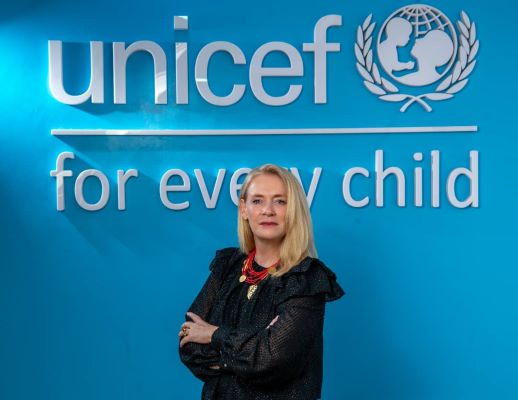The United Nations Children’s Fund (UNICEF) has said that Female Genital Mutilation (FGM) is a harmful practice that violates the rights of girls and women.
The Chief of UNICEF Lagos Field Office, Celine Lafoucriere, stated this during a two-day Media Dialogue on supporting advocacy to end FGM in Nigeria, held on Wednesday in Benin.
The workshop was organized by UNICEF in partnership with the Oyo State Ministry of Information and Orientation.
Lafoucriere revealed that nearly 20 million women and girls in Nigeria have undergone FGM, making the country the third highest in the world.
“This is a huge number we cannot ignore,” she said.
She explained that although FGM is illegal in Nigeria, the practice still continues in many communities. She added that it is mostly driven by myths and traditions, stressing that such customs endanger girls’ health and future.
“No cultural or traditional practice should put girls’ health, rights, or opportunities at risk,” she said.
Lafoucriere, however, noted that joint efforts with stakeholders are gradually changing the situation.
“The good news is that change is possible and is already happening through collaborations and initiatives such as the Movement for Good, led by the Federal Government in partnership with UNICEF,” she said.
She added that millions of Nigerians — men, women, and young people — are now pledging to protect girls from being cut. Survivors are also speaking out and leading the call for change.
“This is where the media is very important,” Lafoucriere told journalists. “You have the power to shape the narrative, amplify survivors’ voices, challenge harmful practices, and inspire families to make better choices for their daughters.”
She urged the media to use their platforms to ensure that every girl in Nigeria grows up free from the fear of FGM.
“Together, we can build a safer and better future for every girl — a future where she can not only survive but also thrive,” she added.
Also speaking, UNICEF Communication Officer for Lagos Field Office, Blessing Ejiofor, said the workshop was aimed at strengthening advocacy to reach every corner of the country.
Ejiofor noted that while campaigns had helped reduce the practice, the goal is to completely eliminate FGM. She stressed that FGM is now a criminal offense in Nigeria, and no girl should go through it.
She called on the media to take the lead in spreading messages that would help end the practice.
In his remarks, the Permanent Secretary of the Oyo State Ministry of Information, Mr. Rotimi Babalola, said the workshop shows the government’s strong commitment to issues affecting children.
He said the media has an important role to play in ending FGM, just as security agencies and the judiciary have been involved in advocacy efforts.
“We still have a lot of work ahead of us. Advocacy has been ongoing, but more effort is needed to totally eliminate FGM,” Babalola said.
He urged journalists to keep working together with government and stakeholders to end the practice nationwide.


